After making a journey across three continents, three countries, four flights, and 22 hours later, I finally arrived in Harare, Zimbabwe. With so many mixed emotions running through me, I got my visa and went through the exit door, looking for someone waiting with my name. After looking around for roughly five minutes, I saw someone standing on the corner, scrolling through his phone in one hand and a cardboard sign that said, “Dewa Sharep” on the other. Now, living in the U.S. for ten years and going to Starbucks thousands of times had paid off for this moment. I was used to people misspelling my name. Therefore, with much confidence, I approached him to confirm. Indeed, he was waiting for me. With a bit of relief that the pickup arrangement I made through multiple disconnected Skype calls actually worked, I sat in my taxi to head towards the hotel.
My driver’s name was Tutende; he was a mid- 20s gentleman working as a taxi driver part-time while studying at the University of Zimbabwe. I appreciated that Tutende was very talkative because the moment I sat in his car, I had so many questions to ask. One of the first things I noticed in his car was the navigation display system. It was in one of the Chinese languages, possibly in Mandarin. With a bit of surprise and curiosity, I asked if he was learning Chinese, which is why he set up his navigation panel to be in Chinese. He laughed and responded that he wasn’t, in fact, the navigation panel came installed in Chinese from the factory, and there is no function to change that to English. This chat sparked a deeper conversation about rising Chinese businesses and products that are now part of the Zimbabwe market. Tutende mentioned that China covers markets such as automobiles, electronics, household appliances, and security surveillance products. He further talked about the rising number of Chinese travelers to Zimbabwe for trade purposes. This actually made him think that I was Chinese as well. In my classes, I had studied about China’s international relations strategies, such as Belt and Road Initiative, cyber policies, and alliance building in Africa and Latin America. Therefore, hearing and seeing a small testimony of that was very eye-opening.
After 30 mins of really good conversation, we arrived at my hotel. I felt like just being in this country for less than an hour, I had begun to learn so much already, and it made me even more excited for all that was to come. Thanking for a smooth drive and great conversation, I said goodbye to Tutende and checked into my hotel. After resting for a bit, I grabbed a menu in my room to order dinner. I ordered chicken, rice, and vegetables plate. I had no clue how much it would cost because the menu didn’t have prices listed. Though I thought it was odd, I was too hungry to care at that moment. When the food arrived, it was warm, delicious, and fresh. The server said the food cost me USD 9. Since this was my first meal, I wasn’t too sure if it was considered expensive or reasonable.
The next morning, I went down to the hotel restaurant to have some breakfast. I ordered some eggs, toast, and sausages. It was delicious, but I couldn’t finish it all. Feeling full, I asked for my bill. The server came to my table and said it was USD 22. I gave her an instant shocking reaction, and with a bit of confusion, I asked, “Are you sure this is my bill? I paid USD 9 for dinner last night.” She paused for a bit, looked at my plate, and said, “since you didn’t eat much, you can pay only USD 10.” At this point, I didn’t get the logic, but I wasn’t going to argue if it meant I was not paying USD 22 for a simple breakfast. Scratching my head and puzzled, I paid the bill and returned to my room. For the next two days, while I was still too tired to go out of the hotel, this fiasco of meal prices kept on going. It had turned into a price guessing game for me. Depending on the server, I was charged differently for a similar meal. Sometimes I paid USD 10 for a meal, sometimes USD 15, and sometimes USD 22. Whenever I would pay less than USD 10 for a meal, I felt a sense of victory. I tried talking to the servers to understand the prices a couple of times, but they always had some reasons to explain.
After resting for a couple of days, it was time for me to get out of my cocoon and meet the head of my organization, Constance and Dickson. It was an instant friendship and comfort with these wonderful leaders. While conversing with them about my stay so far, I talked to them about the dismay I felt about the meal prices. After hearing everything, they expressed that some servers might have taken advantage and charged unreasonable prices because I was a foreigner. They said the average meal price should be under USD 10. That was it! After this point, I was done being a prey of the meal price scam saga. There was no way I was going to eat at that hotel anymore. So, I ventured out to explore the beautiful and vibrant city of Harare and found terrific local restaurants to eat at. I tried traditional foods such as sadza with chicken and vegetable stew. On average, my meals cost under USD 9. I became a happy foodie onwards!
Finally, it was time for apartment hunting! Though I had done some research online before coming to Harare, nothing prepared me for what was coming. The rent prices here took me back to my New York City days when I was paying around USD 1,000 for a single room in a four-bedroom apartment. Yes! The Harare housing market is incomprehensibly expensive! Constance, Dickson, and I looked through around ten places, and nothing was under USD 1000. In a decent neighborhood, a one-bedroom apartment rent ranges from USD 1,200 to USD 3,800. It wasn’t just a shock to me; Dickson and Constance also couldn’t believe the rise in rent prices. Finally, after giving up all hopes while preparing to pay USD 1,200 for a one-bedroom apartment, one very generous offer came my way. A gentleman who had a three-bedroom apartment offered to rent me his place for less than USD 1,000 a month. It was a miracle! I was struggling to find even a one-bedroom apartment for that price; here, he offered me a three-bedroom apartment. This gentleman’s name was Reg. He was one of the kindest people I have ever known. Reg said after hearing about my purpose to be in Harare, the work I came to do, and understanding that I am a student, he had lowered the rent to help out.
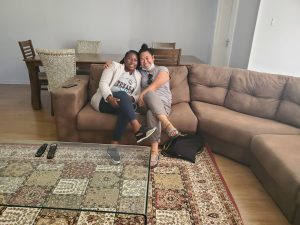
While Dickson was negotiating for rent, Constance and I had to sit down and rest. It was our 6th apartment visit of that day.
Today, as I sit here in my beautiful apartment writing this blog, I am still processing how expensive Zimbabwe is. Compared to many other Sub-Saharan African countries, Zimbabwe has higher prices in housing, food, gas, school, and almost every sector. In a country where 80-90% of the people work in an informal economy where income streams are not steady, and the average monthly income is just around USD 250 a month, I cannot fathom the imbalance. Through this blog, you can see that I am keen to learn more about the economic situation of this country and want to do more research about its resiliency, and the mechanisms Zimbabwean people employ to combat chronic economic challenges. I will dedicate another blog on this topic in future, stay tuned…
Posted By Dawa Sherpa
Posted Jun 15th, 2022

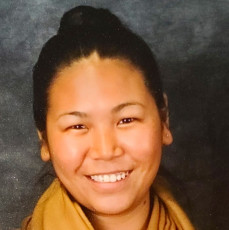
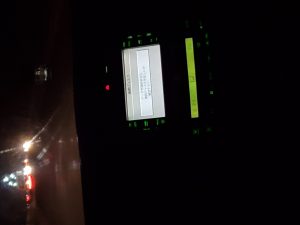
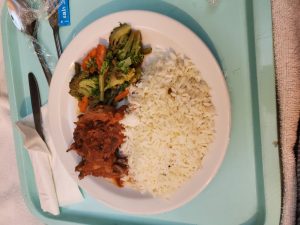
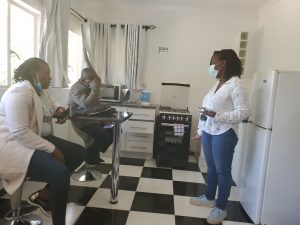
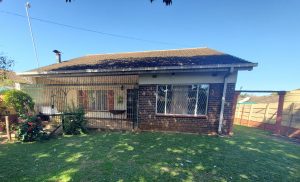
1 Comment
Iain Guest
June 30, 2022
Wonderful introduction to your fellowship in Zimbabwe! Love the exchange with your taxi-driver and his/your perspective on China’s role in Africa!!) As fore prices – yikes! You’ll have to watch your budget this summer. (By the way, JJCF will really like to read about this as part of your fellowship experience!). And then the apartment-hunting. Wow! One takeaway for me is that it will be difficult for you and WAP to put the soap business on a firm business footing when prices are slip-sliding all over the place and – apparently – totally unpredictable. Should that affect the way WE – and other donors – view the program and our expectations?